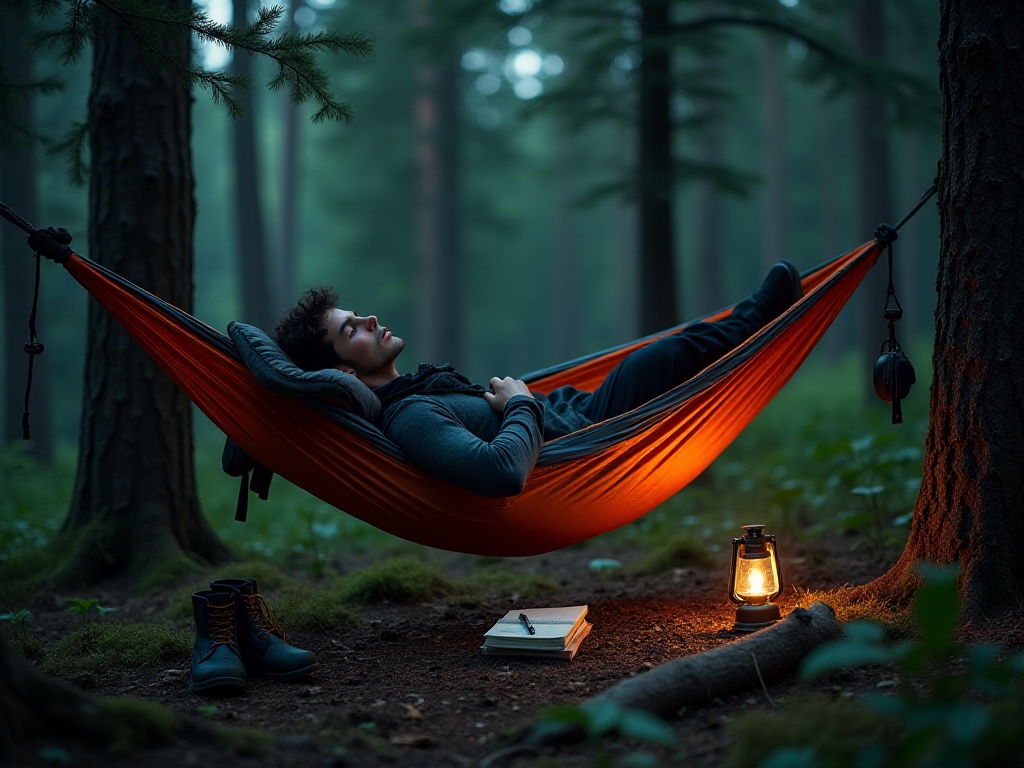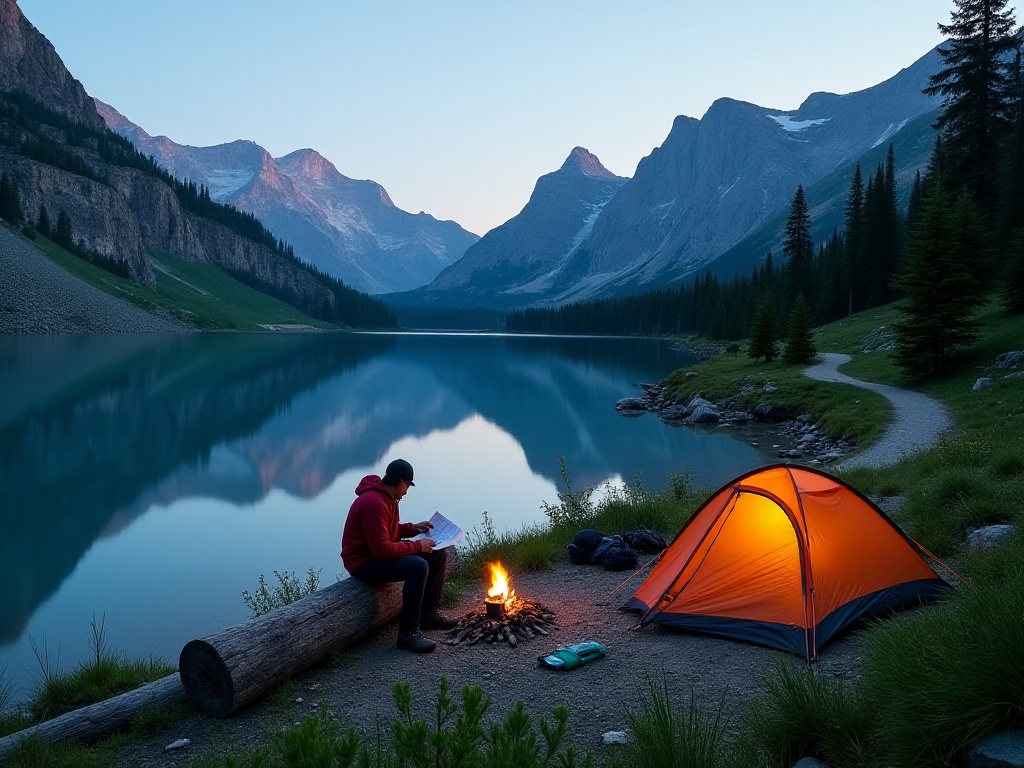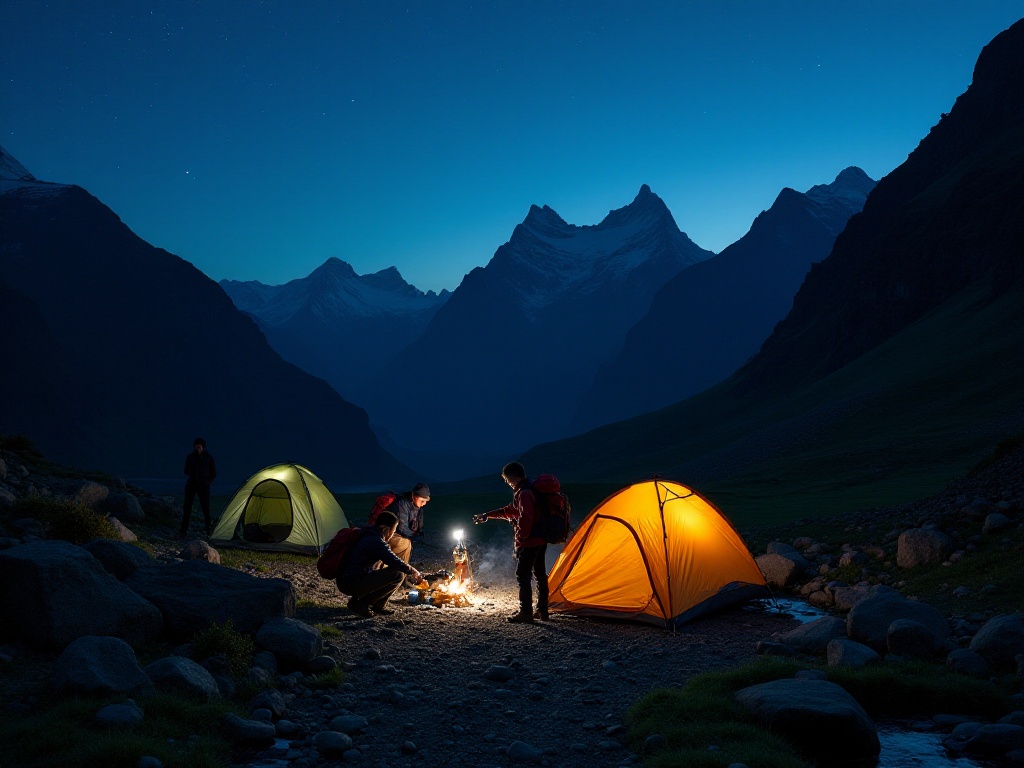Opening Chat
That summer, I set off for Thailand with a worn-out 30L backpack and 2000 yuan in my pocket. To be honest, I was terribly nervous then, even agonizing over taking a tuk-tuk in Bangkok. Looking back now, I was really adorable at that time.
I remember my first time looking for a hostel on Khao San Road. My English was so poor that I had to gesture with a translation app on my phone to communicate with the receptionist. Later, I met a Malaysian Chinese who could speak Mandarin. He not only helped me check in but also treated me to my first authentic Thai Tom Yum Kung. From that moment on, I fell in love with meeting friends from different countries.
Five years have passed, and my passport is now filled with stamps from 40 countries. I've made countless travel friends. From initially stuttering when asking for directions in English to now being able to have deep conversations about life with friends from around the world, this transformation really moves me.
What is a Backpacker
The term "backpacker" traces back to the crazy hippies of the 1970s. Young people back then would recklessly pack their bags in pursuit of freedom, all to explore this unknown world. While today's backpackers aren't as extreme, they still maintain that yearning for freedom and pursuit of authentic experiences.
Last year in Varanasi, India, I met an impressive elderly German couple. They were both 65 years old but stayed in $10-per-night hostels just like us young people. In the evenings, the old man would show us his postcard collection of 40 years, telling us stories of their travels when they were young. The old lady would brew a large pot of Indian milk tea, and we'd sit together on the rooftop watching the sunset over the Ganges.
The couple told me they started backpacking when they were young, and now in retirement, they have even more time to travel the world. They said, "Age is never a limitation; mindset is key." Indeed, backpackers over 35 now make up more than 35% of the total, and this number continues to rise.
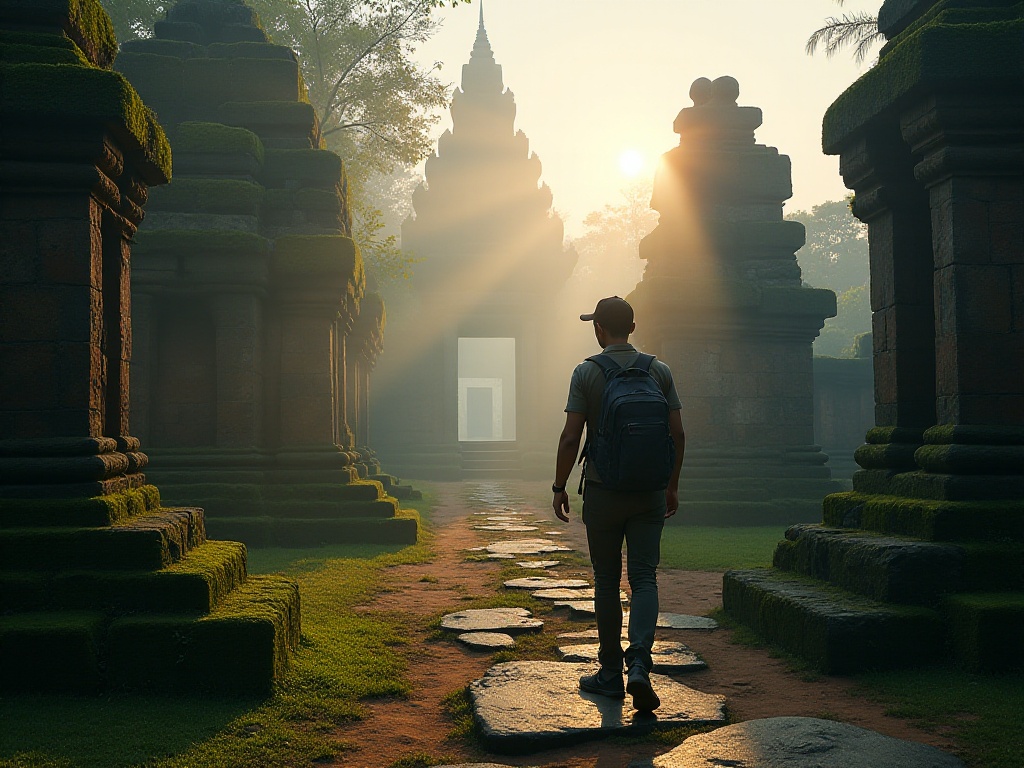
Equipment Selection
Regarding equipment selection, I've paid quite a price in lessons learned. On my first trip, I carried a 65L backpack filled with things "I might need." I ended up suffering terribly on the first day and had to mail half of my stuff back home.
After years of experience, I've found that 40-50L backpacks are ideal. Why? Because this capacity meets basic needs without being too burdensome. In my current 50L backpack, I typically pack: 4 quick-dry T-shirts (chosen for easy washing and drying, plus wrinkle resistance), 2 lightweight pants (preferably convertible to shorts), 7 sets of underwear and socks (perfect for weekly rotation), basic toiletries, plus electronics like phone, camera, and power bank.
For clothing, I highly recommend two tips: first, choose dark colors as they don't show dirt easily; second, ensure all clothes can be mixed and matched, allowing different combinations with minimal pieces.
Backpack selection is also crucial. Don't be fooled by luxury brand backpacks - they might look cool but aren't necessarily practical. My backpack of five years was bought from an outdoor gear store, chosen based on these criteria: good water resistance (which saved me during a downpour in Vietnam), thick shoulder straps (crucial for long-term comfort), and preferably anti-theft hidden pockets (for passport and cash).
Shoes are another important point. I usually bring two pairs: waterproof hiking boots (for rain and trekking) and lightweight sneakers (for city sightseeing). I remember in Nepal, some people wore regular sneakers and really struggled when it rained, making walking very uncomfortable with soaked shoes.
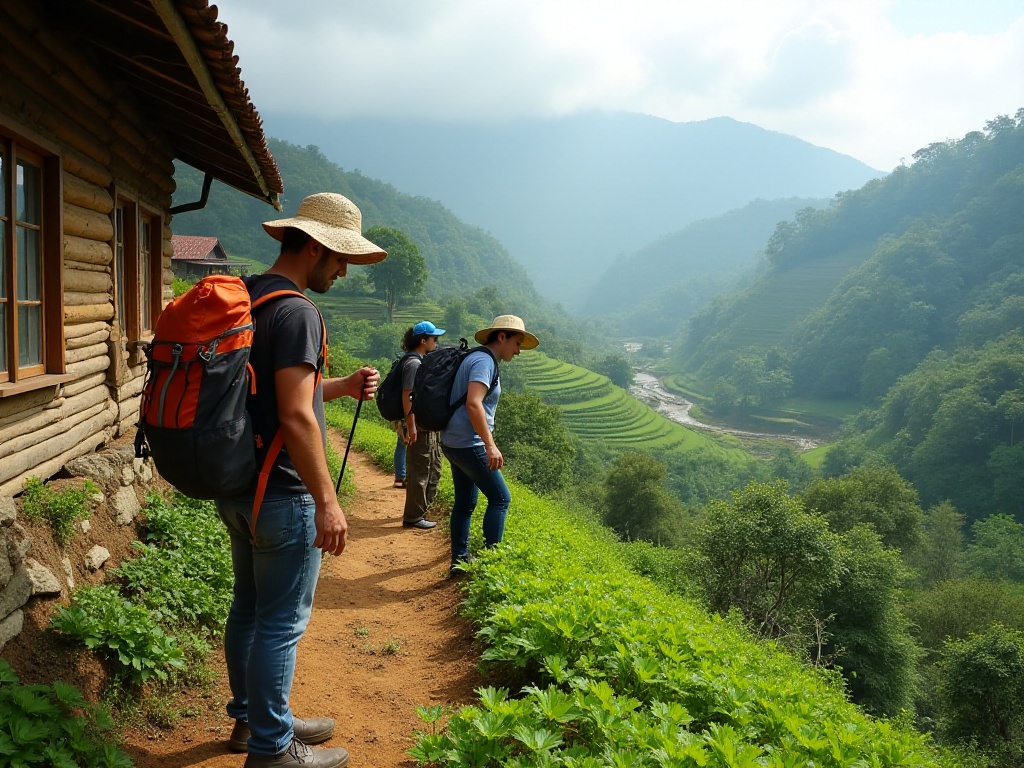
Budget Control
Money is indeed a major concern for many people. However, backpacking doesn't have to be expensive if planned properly. Let me break down the costs by region.
In Southeast Asia, $1000-1500 per month is quite comfortable. Taking Chiang Mai, Thailand as an example, a bed costs $10-15 per night, a meal at a street restaurant is $3-5, and with some attraction tickets and transportation fees, $50 per day is plenty.
Europe is more expensive, typically requiring $2000-2500 per month. But there are ways to save money. For instance, in Prague, I discovered many museums have free admission days monthly - checking these dates in advance can save a lot on tickets. Also, European supermarket food is quite cheap; cooking your own meals can save more than half compared to eating out.
The most impressive was a French guy I met in Cambodia. He spent only $500 monthly. How? He volunteered at a hostel in Siem Reap, working 6 hours daily in exchange for free accommodation and meals. In the evenings, he taught French at bars for extra money. Though tiring, he said it allowed him to truly experience local life.
In India, I met a British couple who used "slow travel" to save money. They would stay in one place for about a month, rent a cheap apartment, and live like locals. This not only saved on accommodation but also allowed them to deeply understand local culture.
Another money-saving tip is using credit cards wisely. Many credit cards offer overseas cashback and point rewards, which can save quite a bit annually. However, it's important to understand the card acceptance situation in different countries, as some places prefer cash.
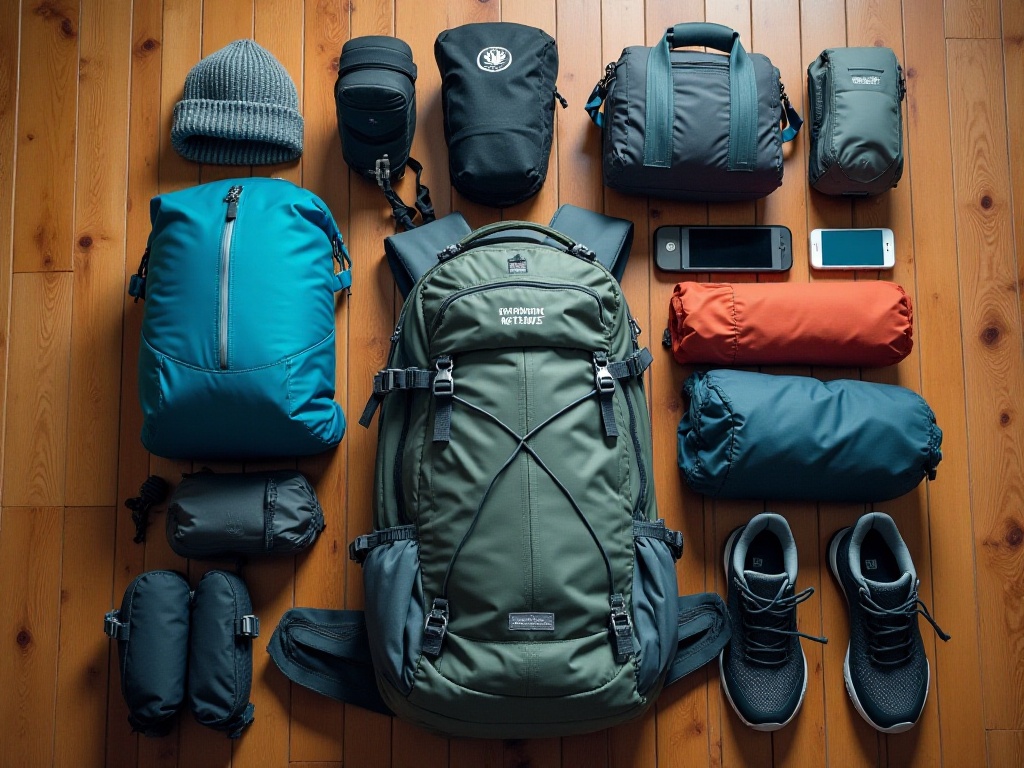
Route Planning
Where should you go for your first backpacking trip? I strongly recommend starting with Southeast Asia. The reason is simple: backpacker facilities are well-developed, prices are low, and cultural differences aren't too extreme. Plus, Southeast Asian people are very friendly - even with limited English, you can communicate through gestures.
According to 2023 data, Thailand, Vietnam, and Cambodia account for 62% of total backpackers in Asia. What does this indicate? These places are especially backpacker-friendly. My recommended beginner route is: start in Bangkok, Thailand, then to Chiang Mai, followed by Vientiane, Laos, then to Hanoi, Vietnam, and finally to Siem Reap, Cambodia. This route has convenient public transportation and showcases different landscapes and cultures.
If you want to challenge yourself, try India. While the initial culture shock can be intense, it's absolutely a place for personal growth. I remember being speechless when I first arrived in Varanasi: the cremation ghats along the Ganges, sacred cows on the streets, bare-chested sadhus - these scenes gave me a new perspective on life and faith.
For Europe, I suggest starting with Eastern Europe. Cities like Budapest and Prague are not only beautiful but also much cheaper than Western Europe. The train system in Eastern Europe is also very developed - a Eurail Pass allows you to freely travel between countries.
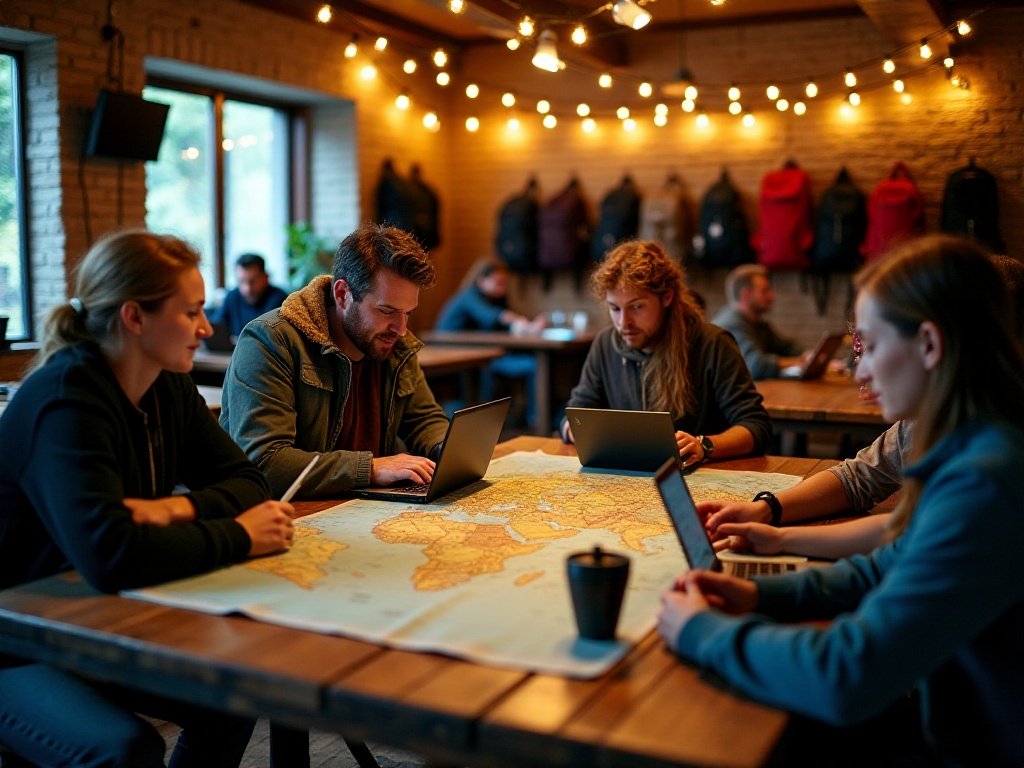
Accommodation Experience
Regarding accommodation, youth hostels are definitely the top choice for backpackers. However, price shouldn't be the only criterion. I have a tip for choosing hostels: first check the rating - hostels rated above 8.5 are usually good. Then read reviews, particularly regarding safety and cleanliness.
In Budapest, I stayed at a hostel rated 9.2 that only cost 15 euros per night but had facilities comparable to hotels: private bathrooms, free breakfast, 24-hour reception, and a rooftop bar. The best part was meeting friends from around the world, with whom I still keep in touch.
However, not all hostels are perfect. I once stayed at a nightmare hostel in Madrid: the room was hot and noisy, sheets seemed unchanged for days, and toilets frequently clogged. So always compare multiple options and read reviews carefully.
If budget allows, I recommend occasionally staying at guesthouses. In Kyoto, Japan, I stayed at a guesthouse converted from a century-old house. The host was an 80-year-old lady who prepared traditional Japanese breakfast for guests every morning and taught us how to wear yukata and prepare matcha tea in the evening. These experiences are impossible to find in hostels.
Safety Tips
Safety is always paramount in travel. According to the World Tourism Organization, 90% of backpacker incidents are actually preventable. Let me share safety experiences gathered over the years.
First, document security. Protect your passport like your life, keep it with you, not in your backpack. Keep copies of important documents separately, and save photos on your phone. I met a Korean girl in Thailand who had her passport stolen, but fortunately had copies and resolved the situation smoothly.
Second, cash security. My rule is to carry only enough cash for two days, keeping the rest in bank cards. When withdrawing money in unfamiliar places, choose ATMs inside banks and be aware of suspicious people around you.
Accommodation safety is also crucial. Choose hostels with lockers and always lock up valuables. In mixed dorms, prefer bottom bunks for easier luggage monitoring. In India, I saw someone leave their backpack beside their bed while sleeping, only to find things missing in the morning.
Transportation safety can't be ignored. In places with chaotic traffic like Hanoi, Vietnam, be extra careful crossing streets. Use ride-hailing apps for taxis to have records. For long-distance buses, choose daytime schedules as night routes are relatively less safe.
Also, always buy travel insurance. In Nepal, I met a backpacker without insurance who suffered severe altitude sickness and had to pay a fortune for helicopter evacuation. Insurance would have covered these costs.
Finally, personal safety. In unfamiliar places, especially at night, avoid going out alone. Trust your instincts if you encounter suspicious people or situations and keep your distance. Remember to maintain regular contact with family about your whereabouts.
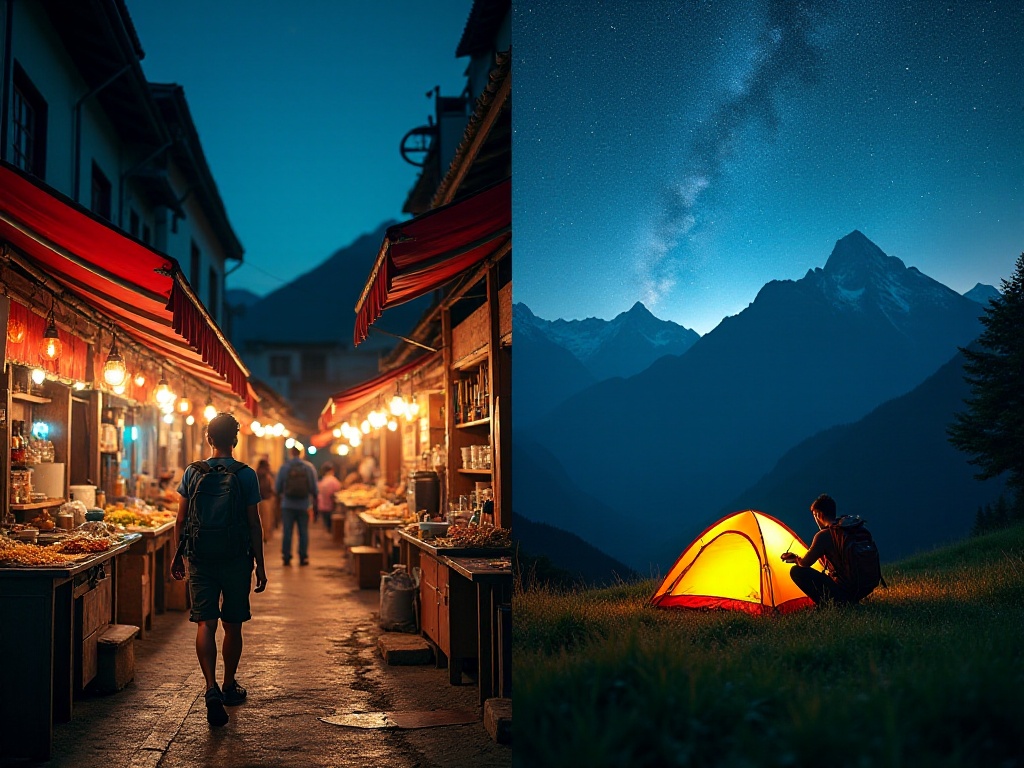
Conclusion and Reflection
These five years of backpacking have taught me that travel's meaning isn't about how many places you've been, but what you've learned along the way. Every encounter, every experience gradually changes our worldview.
Seeing the lives of the impoverished in India taught me contentment; experiencing tribal culture in Africa showed me simple happiness; feeling different lifestyles in Europe broadened my horizons. These experiences are life's most precious treasures.
Now, I'm no longer that nervous rookie shivering on Bangkok's streets five years ago. But every time I shoulder my backpack to set off, I still feel that excitement and anticipation. Because I know new stories always await on the road.
So here's the question: when will you start your backpacking journey? Remember, the feeling of your first backpacking trip is irreplaceable. Whether you're a student or working professional, it's never too late if you have a dream.
Want to join me for a spontaneous journey? The world is vast, and somewhere out there is waiting for you.


